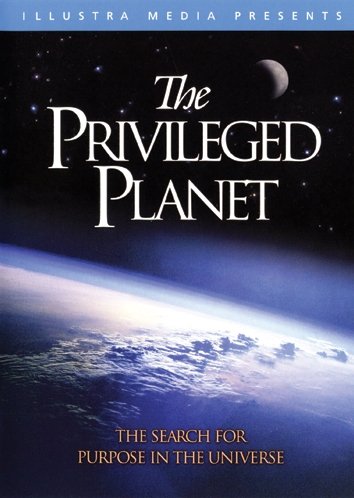“GENIUS Doesn’t Live Up to Its Title”

| None | Light | Moderate | Heavy | |
|---|---|---|---|---|
| Language | ||||
| Violence | ||||
| Sex | ||||
| Nudity |
What You Need To Know:
The characters in GENIUS are too moody or lack emotion. Consequently, the story sadly gets lost in the quicksand. The filmmakers assume viewers have prior knowledge of Wolfe’s life. This leaves gaps in the plot, with emotional temper tantrums unexplained. Though Perkins’ own family life is exemplary, GENIUS has plenty of foul language and adult issues like suicide and Wolfe’s affair with an older married woman. So, MOVIEGUIDE® advises extreme caution for adults.
Content:
(B, C, Ro, H, LLL, V, S, AA, D, MM) Light moral worldview where a family adheres to moral, biblical standards and values, plus wife wears a cross necklace in several scenes, but with some Romantic, humanist elements where some characters are completely ruled by their emotions and act accordingly instead of behaving within the bounds of a moral standard, author’s success goes to his head, and author has an affair with an older married woman; 26 obscenities and profanities; a woman slaps a man on the face, man is threatened with a gun, woman tries to commit suicide by overdosing on pills, man collapses on a beach, and it’s implied a character dies; implied sex between an unmarried couple, plus “sperm” is mentioned in a scene; no nudity; several scenes depict drinking alcohol and a man is drunk in several scenes; cigarette smoking is depicted in multiple scenes; and, a woman leaves her family to have an affair with another man, two men break into a building and trespass, two men choose to ignore their families in favor of working.
More Detail:
The movie opens in the late 1920s, as Thomas Wolfe meets with Max Perkins at Charles Scribner’s & Sons Publishing in New York City about publishing Wolfe’s first novel, OH LOST. After being rejected by dozens of other publishers, Wolfe is over the moon with excitement when Perkins gives him good news. A quiet man by nature, Perkins is intrigued with Wolfe’s rambunctious extroversion where he wears his heart on his sleeve. The only problem is that Wolfe’s manuscript is about 700 pages too long, and filled with poetic, flowery language that unnecessarily complicates the prose. It is such language that captured Perkins’ heart, but he knows it will never sell. Convincing Wolfe of this proves difficult as Wolfe, like most writers, thinks every word is important. Burning the midnight oil, the two men meet each night after hours, meticulously going through 1,000 pages of what is to be Wolfe’s debut novel, LOOK HOMEWARD, ANGEL.
Perkins takes Wolfe home to have dinner with his wife and five daughters. The eccentric author mesmerizes the young girls, but some of his flippant comments about the shallowness of playwriting rubs Perkins’ wife the wrong way, because she’s in the midst of writing a play. In fact, Wolfe dismisses the theater altogether. So, when Wolfe’s older lover and patron, Aline Berstein, who left her husband, asks him to attend her opening night at the Neighborhood Playhouse where she’s a resident designer, Wolfe refuses. He cites his work with Perkins as more important. Then, when Wolfe gains more notoriety, and Perkins increasingly takes more of his time, Aline no longer feels a necessary part of his life, even resorting to attempted suicide to get Wolfe’s attention.
Wolfe’s second novel, OF TIME AND THE RIVER, turns out to be more daunting than the first when he appears in Perkins’ office with box-loads of manuscript…a whopping 5,000 pages and still counting. However, the final book becomes an even bigger success, catapulting Wolfe’s eminence to that above Fitzgerald and Hemingway, both of whom are also authors who work with Perkins.
Sadly, all of this newfound fame and fortune goes to Wolfe’s head, and he’s soon contemplating turning his back on all the people who helped him in his career. As a rival publisher woos Wolfe, Perkins fears he’s not only lost his most successful author, but also an unlikely friend.
The opening scene of this biographical movie sets the tone as Wolfe is shown looking downtrodden in the rain under the veil of a black and white lens. Slowly, colors emerge, but only the drab browns and greens one would expect from the Depression era. The whole ordeal is sullen and drab. Characters are either too moody or lack emotion, so the story regrettably gets lost in the quicksand that sinks most biographical movies. The filmmakers assume viewers have prior knowledge of Wolfe’s life, thus leaving gaps in the plot with either delayed explanation or none at all. This only adds to the confusion as to why every other scene seems to have someone burst into an impromptu temper tantrum with no apparent cause. The dialogue also gets wearisome as Wolfe spouts line after line laced with poetic imagery, unrealistically speaking like he would write. Despite these shortcomings, the final scene is touching and poignant, marking the only moment in the entire movie when Perkins takes off his hat.
Perkins and his family are a model of morality. Everyone obviously loves and cares for one another. Even when disagreements arise, they are handled without anger or malice. Perkins is invited to cheat on his wife at one point, and he refuses. Instead, he hurries home to his family and reaffirms his role as a loving father and husband. Although God and church are never brought into the picture, Mrs. Perkins is seen wearing a cross necklace.
In contrast to the relationship between Perkins and his wife, Wolfe and Aline are constantly bickering, and doing or saying things that hurt each other emotionally. Wolfe doesn’t view fidelity as a virtue, nor do the people he tends to hang around. He does mention God in some of his prose, but it is unclear whether God is strictly a literary character to him or a true deity.
GENIUS has plenty of foul language, including a fair amount of profanities taking God’s name in vain. Adult issues like suicide, gun violence, drinking, and extramarital affairs make this movie inappropriate for children. Extreme caution is advised for adults.
Eventually, Wolfe died an early death at age 38, succumbing to tuberculosis of the brain. Nobel Prize laureate William Faulkner once praised Wolfe as the best writer of their generation. Though Perkins’ editing of LOOK HOMEWARD, ANGEL has been criticized for cutting out too much, Wolfe still considered Perkins his closest friend when he died.


 - Content:
- Content: 





